
CDC maintains childhood immunization guidelines during COVID-19
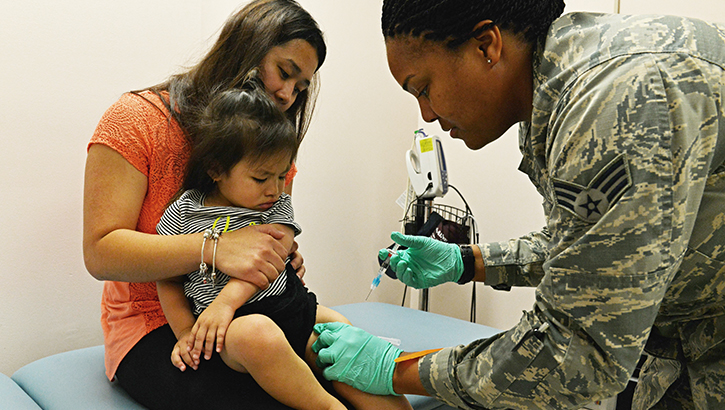
U.S. Air Force Senior Airman Tamika Bradley, 20th Medical Operations Squadron allergy and immunizations technician, prepares to administer a vaccine to a child at Shaw Air Force Base, S.C. National Infant Immunization Week is April 25 - May 2, 2020. (U.S. Air Force photo by Airman 1st Class Destinee Dougherty)
Immunizations remain a vital component of pediatric health care, even during the COVID19 pandemic. Immune systems are still developing in children and infants. Vaccinations result in the production of antibodies to protect people from potentially deadly diseases, explained Ann M. Morse, a family nurse practitioner at the North-Atlantic Regional Vaccine Safety Hub, Naval Medical Center Portsmouth.
“Immunizations allow the immune system to recognize that germ, virus, or bacteria and fight off that disease, or limit the severity of complications if exposed to the real disease,” continued Morse.
Immunizations also protect public health through herd immunity by preventing a widespread outbreak of highly infectious diseases, like measles or whooping cough. Despite the current climate of social distancing, vaccine-preventable diseases continue to circulate. Individuals who have not been vaccinated and contract the disease could spread it to susceptible individuals because those infected can be contagious up to a week before developing any symptoms, explained Morse. She added that if children stop receiving necessary vaccinations, herd immunity decreases, increasing the likelihood of other potential viral outbreaks, like measles.
“If multiple individuals developed one or more different vaccine-preventable diseases, hospitals could again have decreased number of isolation rooms, critical care (ICU/CCU) beds, ventilators, protective coverings (masks, gowns, gloves, boots) and more,” Morse explained. She added there are a variety of infant or childhood respiratory illnesses that show similar symptoms of COVID-19, such as fever, cough, and body aches.
The Centers for Disease Control and Prevention continues to encourage childhood immunizations during the COVID-19 crisis, but recently updated its recommendations for health care providers to manage patient visits. The way health care providers schedule immunization appointments may vary according to social distancing standards, said Morse. It is also possible that depending on the influx of COVID-19 cases in a local community, some health care providers may not schedule in-person wellness visits, but will continue to offer immunizations, noted Air Force preventive medicine physician Lt. Col. (Dr.) Ruth Brenner, deputy chief of the Immunization Healthcare Division.
“Due to the pandemic, there is a strain on medical resources, so some clinics may not be able to support a full complement of immunization services or at the same location where immunizations may normally be received. I recommend contacting your primary care manager or clinic to ask what is available as well as community options,” Brenner said.
As a mother of young children, Brenner has had to navigate the medical system for important immunizations during the COVID-19 pandemic with the help of the Pediatric Clinic at her military treatment facility. For parents who choose not to immunize their children during the pandemic, there are "catch up" schedules provided by the CDC so that children don’t need to start over or repeat doses already received, explained Brenner. Many child care centers are allowing a grace period for childhood immunizations at this time, she noted.
“Each family should balance the risks and benefits before going to the clinic,” she said, adding that MTFs are adhering to CDC recommendations of social distancing and separating sick children from well children.
Amid the COVID-19 pandemic, the strain on health care systems is obvious, said Brenner, adding, “Pediatric immunizations remain an important aspect of the health of our children and our communities. Military treatment facilities are working hard to continue to offer pediatric immunizations during the current health crisis.”
Morse said military families should call their clinics to arrange times for their visit and ask about precautions they will need to follow upon entering the facility, such as wearing a face mask. “It will be important to ask about normal vaccine side effects and take home the vaccine information sheets,” she said.
Concerned parents can also call the IHD’s 24/7 Immunization Healthcare Support Center at 877-438-8222 and select option 1 to speak with an on-call nurse or provider.
Immunization Tool Kit 9th Edition
Publication
4/30/2020
A practical reference that facilitates and enhances the global delivery of quality immunization healthcare to Department of Defense (DoD) beneficiaries and employees. The Defense Health Agency Immunization Healthcare Division (DHA-IHD) publishes the Immunization Tool Kit based on national recommendations, evidenced-based, peer-reviewed published medical literature, and clinical practice guidelines.
Army veterinarians post FAQ for pet owners to Army Public Health Center COVID-19 website
Article
4/30/2020

Studies are underway to investigate human to animal transmission in multiple animal species.
COVID-19: Know symptoms and next steps to help ensure full recovery
Article
4/30/2020
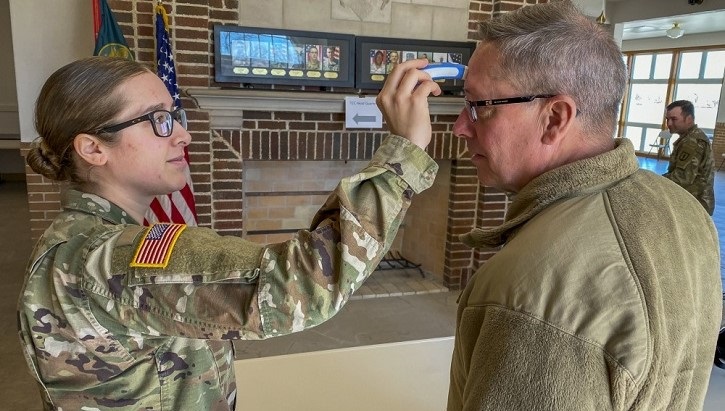
Symptoms of COVID-19
BAMCheroes appreciation
Video
4/29/2020
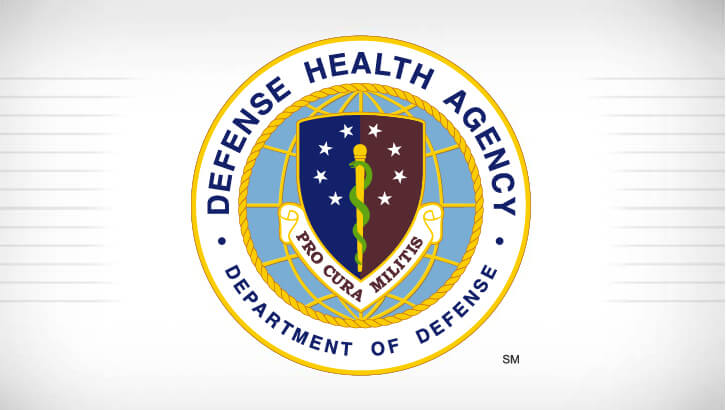
Our community has been a great source of support! Check out some of the positive feedback Brooke Army Medical Center has received for our incredible healthcare professionals.
Defending the Homeland: WRNMMC on front line of COVID-19 war
Article
4/29/2020
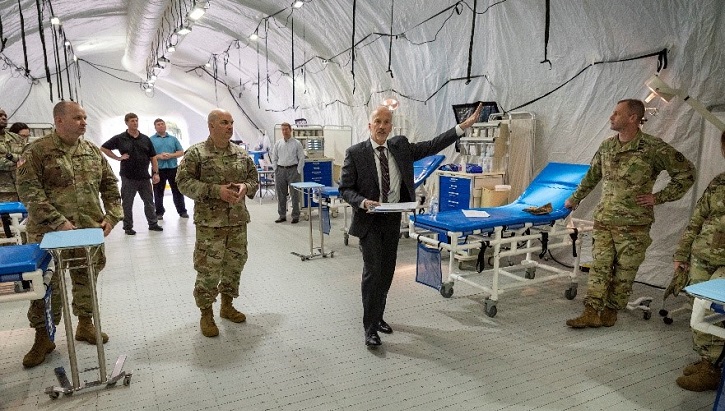
For patient and staff safety, WRNMMC started restricted access control points March 12.
Amid COVID-19, seasonal influenza still a threat to force readiness
Article
4/29/2020
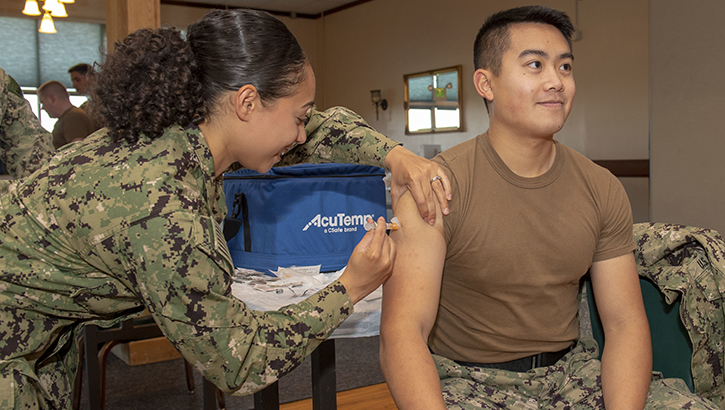
New Southern Hemisphere flu vaccine available May 2020
MHS pharmacies adapt services amid COVID-19
Article
4/28/2020
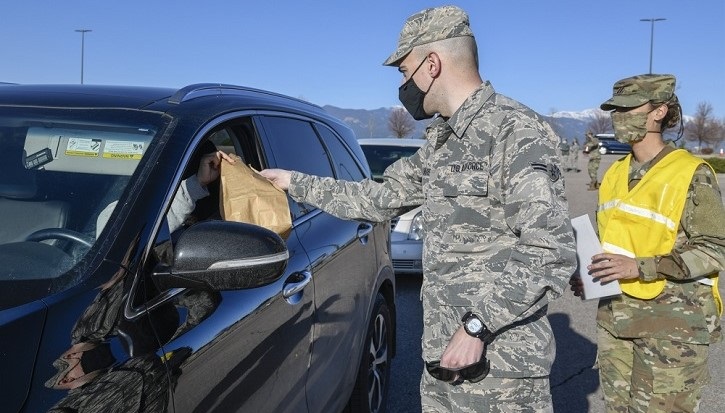
Curbside, drive-thru, parking lobbies among solutions for prescription pickup
General’s visit punctuates engineering efforts converting arena to alternate care site
Article
4/27/2020
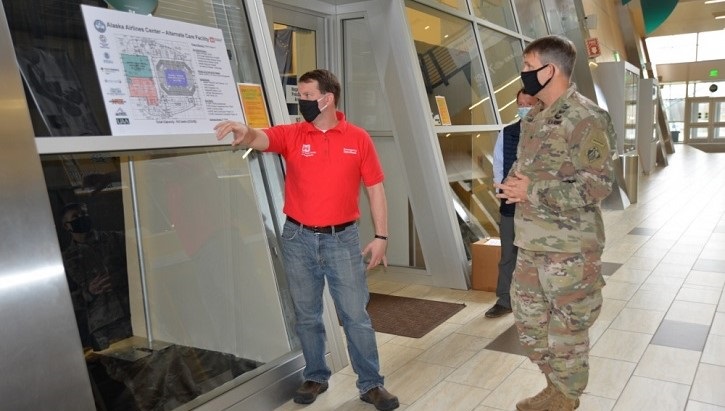
The project cost $1.26 million and was completed in one week.
Video Message from LTG Ronald J. Place, MD
Video
4/24/2020

Thank you for continuing to do your part to help flatten the curve
MHS Minute - Military Medicine: On the Front Lines of COVID-19
Video
4/24/2020
Agencies across the federal government are partnering up to combat COVID-19. Find out how the Military Health System is doing its part to support the U.S. response to this pandemic, while ensuring our Service members remain ready.
Medical lab workers ensure readiness and wellness behind the scenes
Article
4/24/2020
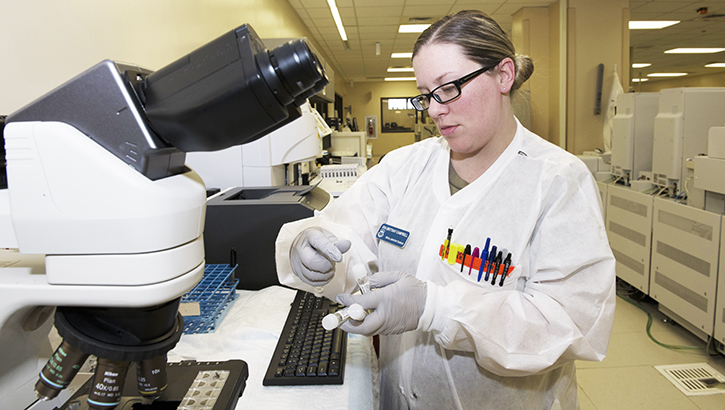
This week, thank a medical laboratory professional
Early Detection Support for Troops During COVID-19
Article
4/23/2020
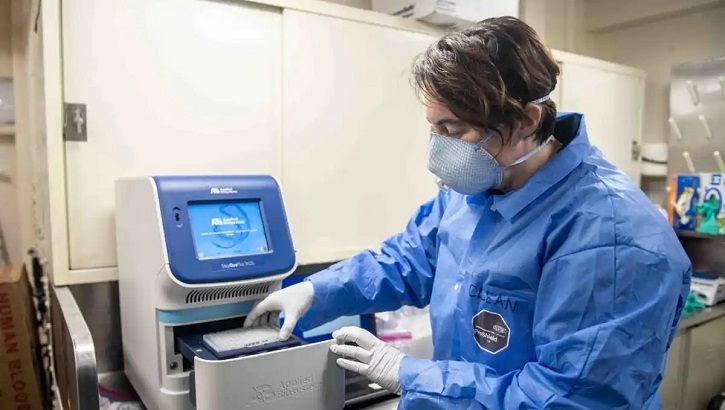
The network’s ability to integrate the priorities identified by the Combatant Commands into its mission creates an agile organization ready to respond to needs as they occur.
I Am Navy Medicine - Stopping the spread of COVID-19: Hospital Corpsman 3rd Class Donald Cooney
Article
4/23/2020
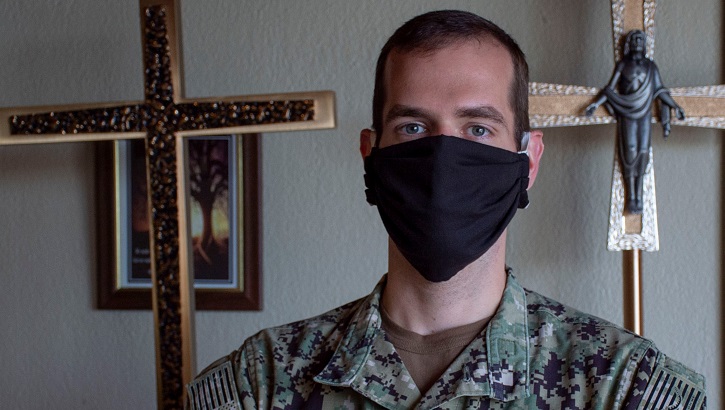
Faith and a strong sense to serve his country has brought a Lebanon, Ore., native to the world of Navy Medicine.
MHS - Defending the Homeland: Proning made easy at Keesler Air Force Base
Article
4/22/2020
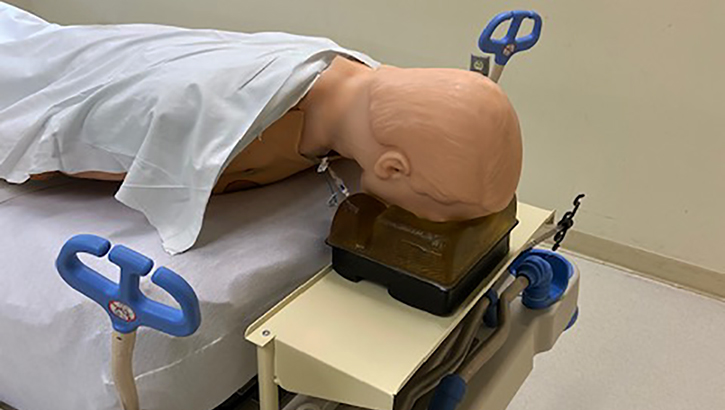
Departments work together on solution to ICU breathing problem
Cybersecurity critical for DoD teleworkers during pandemic
Article
4/21/2020

During the COVID-19 pandemic, there is a high-volume of DoD network users teleworking. Everyone must balance the requirements of the military health care mission with that of protecting the network, computers and mobile devices.





















.png)












No hay comentarios:
Publicar un comentario